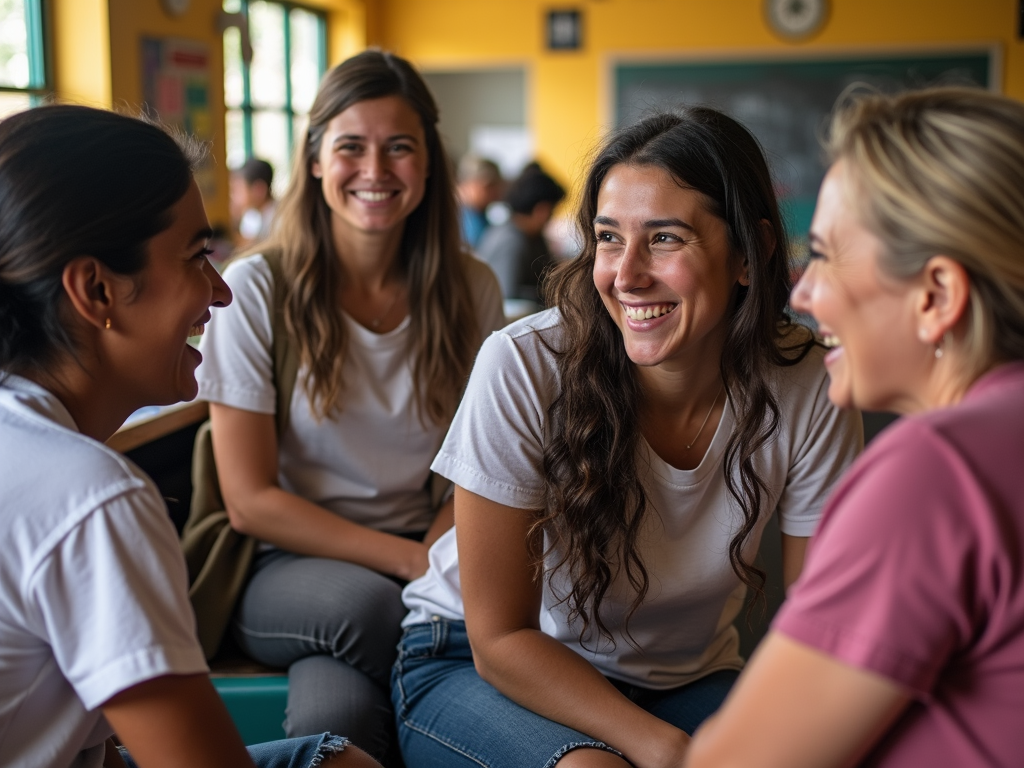Language Learning Tips for Volunteers
By , April 19, 2025
Volunteering abroad offers a unique opportunity to immerse yourself in a new culture and language. Learning the local language can greatly enhance your volunteering experience, allowing you to connect more deeply with the community and make a greater impact. In this article, we'll share practical language learning tips for volunteers to help you make the most of your time abroad.

Why Learn the Local Language?
Learning the local language while volunteering abroad can significantly enrich your experience. Here are a few reasons why it's worth the effort:
- Better communication with locals: Speaking the language helps you understand and be understood, fostering stronger relationships.
- Deeper cultural understanding: Language and culture are intertwined; knowing the language opens doors to cultural nuances.
- Enhanced volunteering effectiveness: Effective communication can make your volunteer work more impactful.
- Personal growth and confidence: Mastering a new language boosts your confidence and broadens your horizons.
Tip 1: Immerse Yourself in the Language
One of the most effective ways to learn a language is through immersion. As a volunteer abroad, you're already in an immersive environment. Take advantage of this by using the local language in your daily interactions. Whether it's ordering food, asking for directions, or chatting with your host family, every conversation is an opportunity to practice.
- Set language goals: Decide how much time you'll dedicate to language learning each day.
- Keep a vocabulary notebook: Write down new words and phrases you learn.
- Use language learning apps: Supplement your learning with apps like Duolingoor Babbel.
Remember, the key to immersion is consistency. Even small, daily efforts can lead to significant progress over time.

Tip 2: Find a Language Exchange Partner
Language exchange is a mutually beneficial way to learn. Look for locals who are interested in learning your native language. You can teach each other, practicing speaking and listening skills in a relaxed setting. This not only helps with language learning but also fosters cultural exchange.
- Where to find partners: Community centers, language schools, or online platforms like Tandem or HelloTalk.
- Set clear goals: Decide what you want to achieve in each session, such as practicing specific topics or grammar points.
- Be patient and encouraging: Remember, both of you are learning, so support each other.

Tip 3: Take Language Classes
If your schedule allows, consider enrolling in language classes. Many volunteering programs offer language courses as part of the experience. Alternatively, you can find local language schools or online courses. Structured learning can provide a solid foundation in grammar and vocabulary.
- Group classes vs. private tutoring: Group classes are great for interaction, while private tutoring offers personalized attention.
- Online options: Platforms like italki or Verbling connect you with language teachers worldwide.
- Consistency is key: Attend classes regularly and do your homework to reinforce what you've learned.

Tip 4: Embrace Cultural Understanding
Language and culture are closely linked. By learning about the local culture, you'll gain insights into the language and vice versa. Attend cultural events, try local foods, and learn about traditions. This will not only enrich your experience but also make language learning more meaningful.
- Participate in local festivals: Experience the culture firsthand and learn related vocabulary.
- Read local literature or watch movies: This exposes you to the language in context.
- Ask questions: Show interest in the culture; locals will appreciate your curiosity.

Tip 5: Practice with Locals
Don't be afraid to practice speaking with locals, even if you're not fluent. Most people appreciate the effort and are happy to help. Start with simple phrases and gradually build up to more complex conversations. Remember, making mistakes is part of the learning process.
- Start small: Begin with greetings and common phrases.
- Use gestures: If you get stuck, use hand gestures or drawings to communicate.
- Find a language buddy: Pair up with another volunteer or a local who can practice with you regularly.

Tip 6: Use Technology to Your Advantage
There are numerous apps and online resources that can aid your language learning. From language learning apps like Duolingo to flashcard apps like Anki, technology can supplement your learning. You can also use translation apps for quick reference.
- Language learning apps: Duolingo, Babbel, Memrise.
- Flashcard apps: Anki, Quizlet.
- Translation apps: Google Translate, Microsoft Translator.
While technology is helpful, remember that it's a tool to support your learning, not a replacement for real-life practice.

Addressing Challenges
Volunteering can be demanding, and you might face challenges in finding time or energy for language learning. However, even small, consistent efforts can lead to progress. Here are some ways to overcome common obstacles:
- Integrate learning into your routine: Listen to language podcasts during your commute or practice vocabulary during breaks.
- Set achievable goals: Aim for short, daily study sessions rather than long, infrequent ones.
- Stay motivated: Reward yourself for milestones, like learning a certain number of words or having a conversation entirely in the local language.
Summary
Learning a language while volunteering abroad can be a rewarding experience. By immersing yourself in the language, finding language exchange partners, taking classes, understanding the culture, practicing with locals, and using technology, you can make significant progress. Remember to be patient with yourself and enjoy the process. The effort you put into learning the language will not only enhance your volunteering experience but also leave you with a valuable skill for life.
